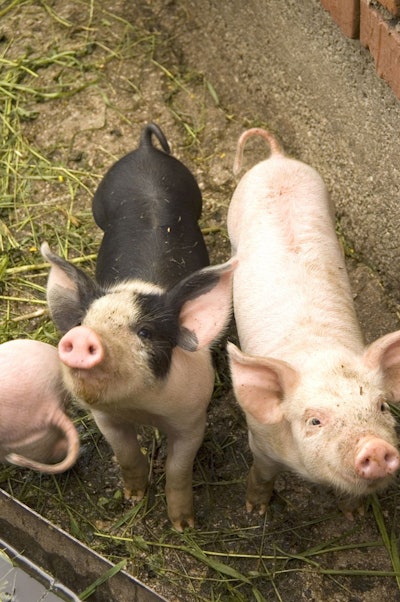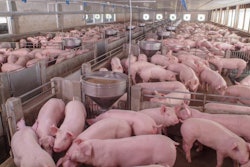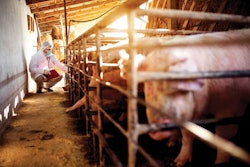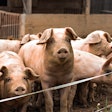
First cases of African swine fever (ASF) have been detected in pigs in East Malaysia, prompting calls for urgent action to halt the spread of the disease.
After the first confirmation of African swine fever (ASF) in pigs, the veterinary authority in the Sabah region of Malaysia has been authorized to carry out the necessary measures to control the disease. The agriculture minister has granted approval for this action, reports Malay Mail.
The Southeast Asian country’s first cases are in Pitas, which is a district in the state of Sabah in Eastern Malaysia on the island of Borneo.
Under the latest declaration, all pigs — wild and domestic — within 50 kilometers of the outbreaks are to be culled. Furthermore, sales and movements are to be controlled of live pigs and pork products, and affected villages and premises will be disinfected. There will be a campaign to raise awareness of ASF.
Meanwhile, the government is considering financial compensation for owners of pigs that are culled, according to the same source.
With these measures, the government aims to prevent the spread of the disease to commercial pig farms in neighboring districts, reported New Straits Times.
Annually, Malaysia produces pig meat with a value of MYR300 million (US$74 million) for domestic consumption.
The other Malaysian state on Borneo, Sarawak, has already banned live pigs and pork from Sabah, reported The Edge Markets. Sarawak has an estimated 30,000 sows, and produces 455,000 pigs per year.
According to the latest report from Malay Mail, sales of pork have dropped by 50% since the outbreak started.
As ASF is not a threat to human health, a Sabah pig producer is blaming the market collapse on misinformation. He stressed that no visitors are allowed on his farm. Furthermore, all vehicles and employees on the premises are regularly disinfected.
New outbreaks lead to more restrictions in the Philippines
Outbreaks of ASF have been confirmed in two more towns in Leyte, reports the Philippine News Agency (PNA).
All pigs within 500 meters of a confirmed outbreaks are to be culled. These will add to the more than 4,000 animals that have been destroyed since the first cases in the town of Abuyog in mid-January. The source of the initial outbreak is thought to be the sharing of a breeding boar.
The province of Leyte is located in the region of Eastern Visayas. Across the country, the same source reports the introduction of greater controls over the movements of live pigs and pork products. These include more inspections of vehicles at the borders of Tacloban City, which borders Leyte.
In the Western Visayas region, quarantine checkpoints are now operating at the borders of Antique province. For now, drivers without the appropriate certification are receiving a reprimand. They may be fined up to PHP5,000 (US$103) or imprisoned for up to one year in the future. In the same province, retailers are being urged to remove from their shelves pork-based processed and canned products that originate in ASF-infected areas such as Luzon.
In another province in the same region — Negros Occidental — only registered or accredited vehicles are permitted. None may enter from an ASF “red zone,” where recent outbreaks have been confirmed.
Also setting up checkpoints and increasing border controls are the provinces of Ilocos Norte (Ilocos region on the island of Luzon) and General Santos City (Soccsksargen region on Mindanao).
Filipino pig owners urged to take ASF insurance
This week, the national government has been considering the introduction of 50% insurance subsidy for pig farmers, reports PNA.
Agriculture Secretary William Dar has urged hog raisers to take out insurance to provide financial cover in cases of an ASF outbreak. This is free of charge for backyard herds that are registered, and commercial producers pay a premium of 2.25%.
South Korea targets wild boar for ASF control
To gain control over ASF, South Korea’s agriculture ministry has announced more controls over the wild boar in the north of the country near to the border with North Korea.
From the maximum of 1.4 wild boar per square kilometer, the plan is to reduce the density of this population to just one, reports Yonhap. Furthermore, additional fences will be constructed to prevent the movements of the animals further south.
Additional hunting has been successful in the past to reduce animal numbers. From an estimated six per square kilometer in October 2019, the density was down to just over four one year later.
According to the news agency, the number of cases of ASF in wild boar has reached 1,138 since the first outbreak in 2019. No cases have been detected in South Korea’s domestic pigs since October 2020.
View our continuing coverage of the global African swine fever situation.


















